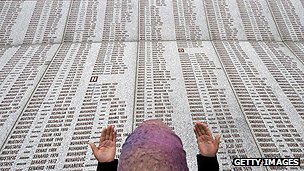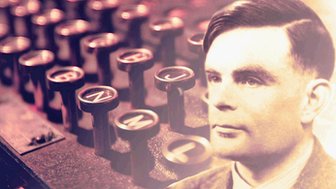Bosnia-Hercegovina profile

Bosnia-Hercegovina is recovering from a devastating three-year war which accompanied the break-up of Yugoslavia in the early 1990s.
The 1992-1995 conflict centred on whether Bosnia should stay in the Yugoslav Federation, or whether it should become independent.
It is now an independent state, but under international administration. Its three main ethnic groups are Bosniaks (Bosnian Muslims), Croats and Serbs. The war left Bosnia's infrastructure and economy in tatters. Around two million people - about half the population - were displaced.
International administration, backed at first by Nato forces and later by a smaller European Union-led peacekeeping force, has helped the country consolidate stability.
 Bosnia includes Christians and Muslims, like this man preparing for a pilgrimage
Bosnia includes Christians and Muslims, like this man preparing for a pilgrimage
At a glance
- Politics: Prime Minister Vjekoslav Bevanda was elected by parliament in January 2012 after 15 months of deadlock. Semi-independent Serb and Muslim-Croat entities have their own governments, which are linked by weak central institutions
- Economy: Bosnia has what is believed to be the highest unemployment rate in Europe. Analysts say political instability has scared off foreign investment
- International: Political impasse has stalled reforms needed for EU accession
Country profiles compiled by BBC Monitoring
But early in 2007 the International Crisis Group, a think tank, warned: "Bosnia remains unready for unguided ownership of its own future - ethnic nationalism remains too strong."
The 1995 Dayton peace accord, which ended the Bosnian war, set up two separate entities; a Bosniak-Croat Federation of Bosnia and Hercegovina, and the Bosnian Serb Republic, or Republika Srpska, each with its own president, government, parliament, police and other bodies.
Overarching these entities is a central Bosnian government and rotating presidency. In addition there exists the district of Brcko which is a self-governing administrative unit, established as a neutral area placed under joint Serb, Croat and Bosniak authority.
Dayton also established the Office of the High Representative (OHR). The Office's representative is the state's ultimate authority, responsible for implementation of Dayton and with the power to ''compel the entity governments to comply with the terms of the peace agreement and the state constitution''.
Critics of Dayton said the entities it created were too close to being states in their own right and that the arrangement reinforced separatism and nationalism at the expense of integration.
Negotiations to amend the existing constitution, established by Dayton, in order to strengthen state institutions and transform the country into a non-ethnic parliamentary democracy, have so far failed to make much progress.
EU talks A woman prays at a memorial to victims of the bitter civil war of the 1990s
A woman prays at a memorial to victims of the bitter civil war of the 1990s
In a bid to encourage Bosnia to resolve its ethnic divisions and eventually qualify for EU membership, EU foreign ministers gave the go-ahead in late 2005 for talks on a Stabilisation and Association Agreement with the country.
The prospect of talks with the EU is thought to have increased pressure for the capture of two key Bosnian Serb war crimes suspects, Radovan Karadzic and Ratko Mladic.
After nearly 13 years on the run, Radovan Karadzic was arrested in July 2008 by Serbian security forces in Belgrade. His trial on war crimes charges opened at the UN tribunal in The Hague in October 2009. Ratko Mladic was arrested by Serbian intelligence officers in a village near Belgrade in May 2011.
In the meantime, Bosnia's ethnic divisions appeared to become even wider, with nationalist parties doing well among all three ethnic groups at local elections in October 2008.
And only days before the Karadzic trial opened, efforts by the EU and US to break the stalemate on constitutional reform and prepare the country for eventual EU and Nato membership ended in failure when leaders of the three main ethnic groups rejected the proposals.
The Bosnian Serb leadership in particular continues to be resentful at having to accept the authority of the OHR, giving rise to suspicions that its ultimate goal is for the Republika Srpska to break away from the Bosniak-Croat Federation.
The 2010 general election was followed by a protracted political deadlock, as ethnic political leaders took over a year to reach agreement on the formation of a new government.


 Greek PM to reveal new cabinet
Greek PM to reveal new cabinet Syria jet pilot defects to Jordan
Syria jet pilot defects to Jordan Art of rejection
Art of rejection The cult of TED
The cult of TED Changed by Bali
Changed by Bali Through a lens
Through a lens Alan Turing: Man and myth
Alan Turing: Man and myth Talking Movies
Talking Movies